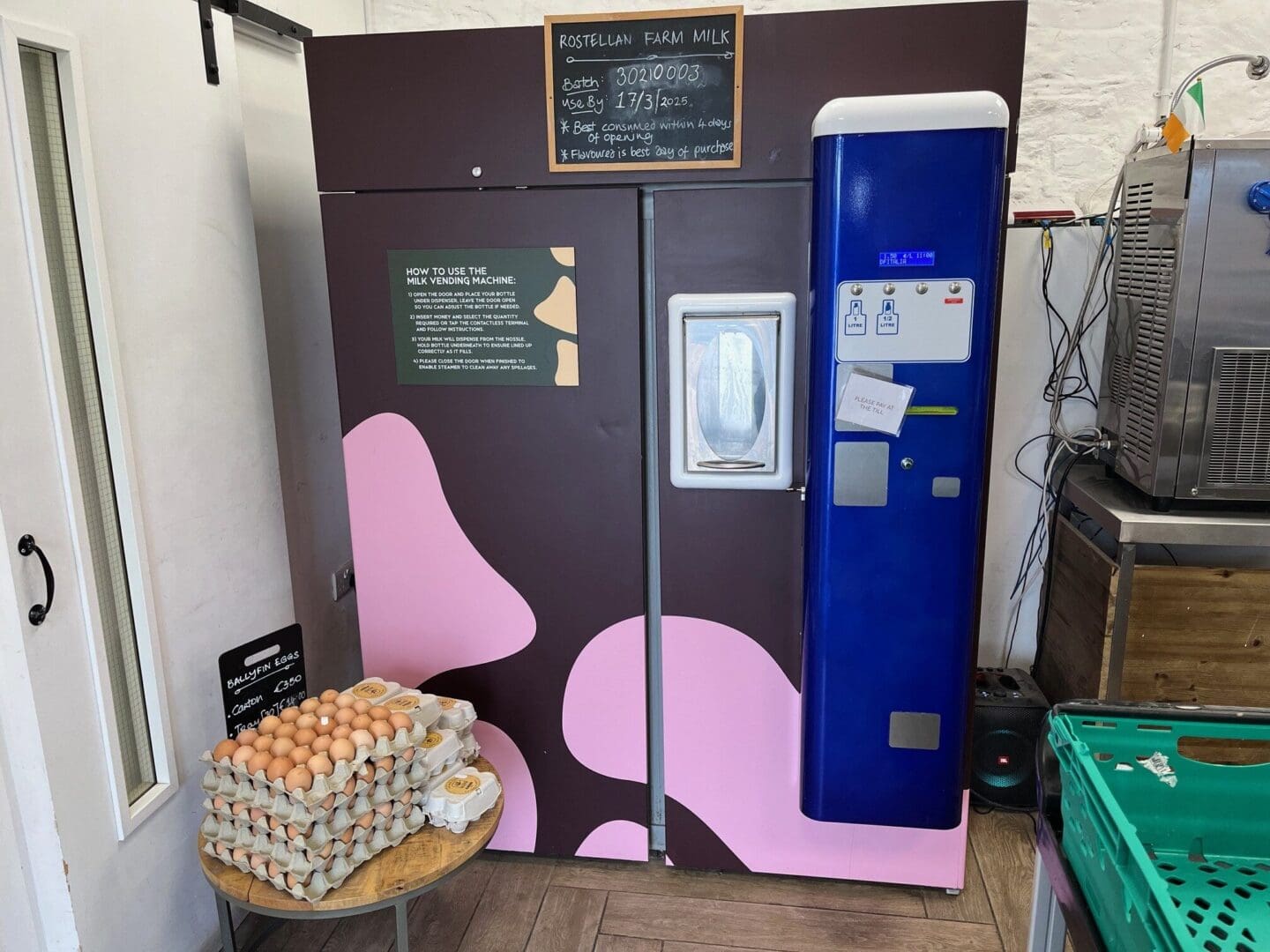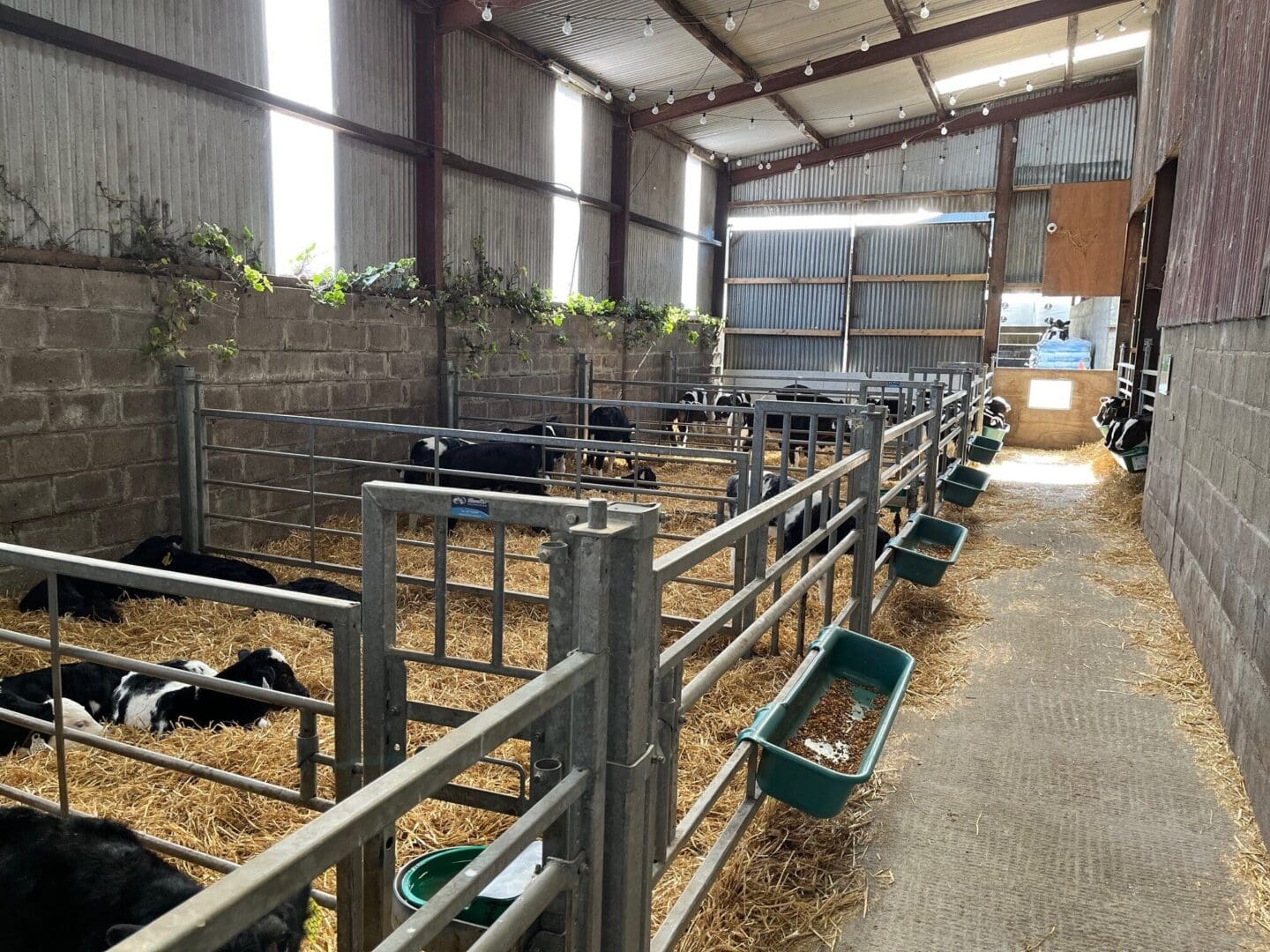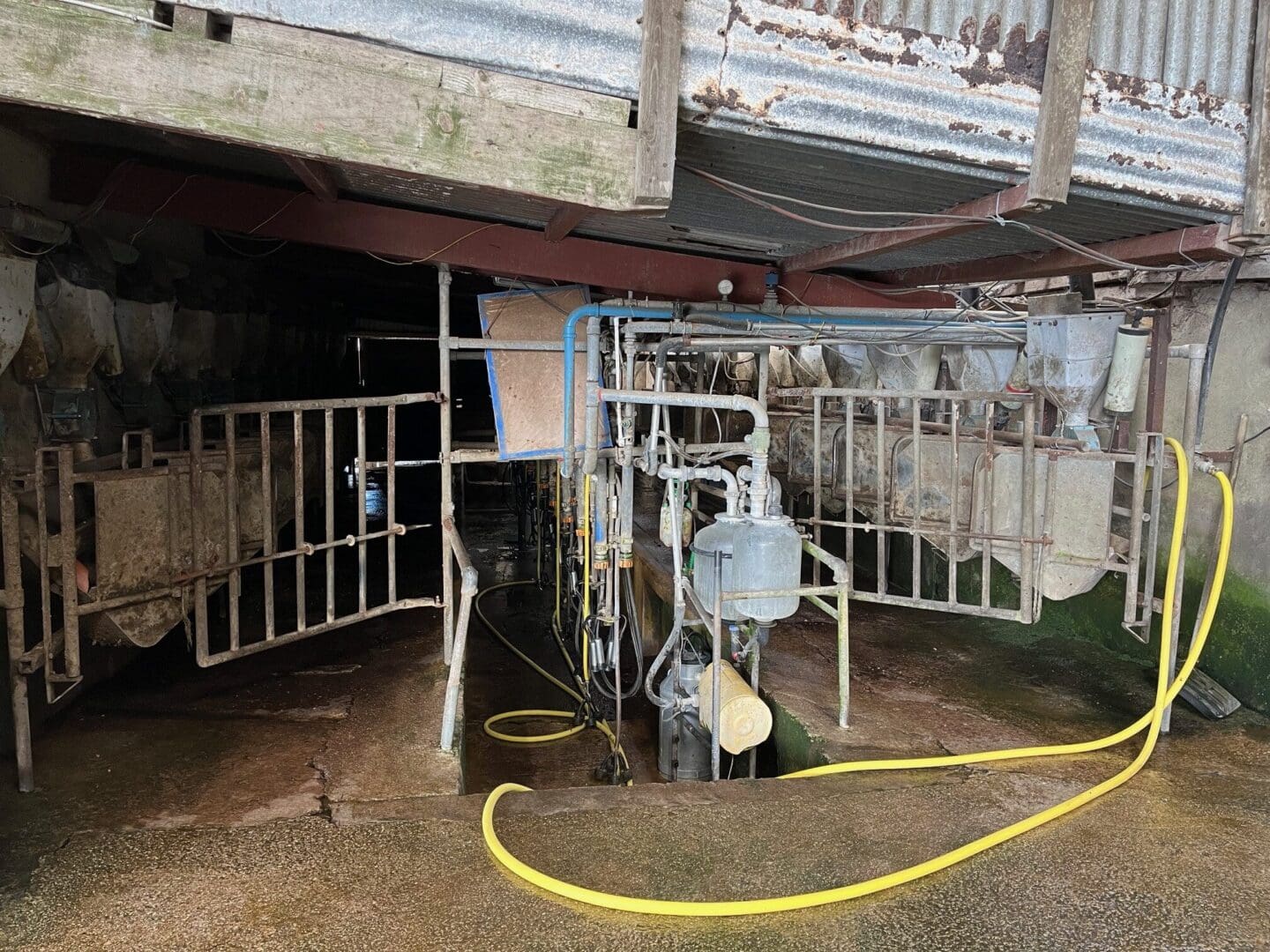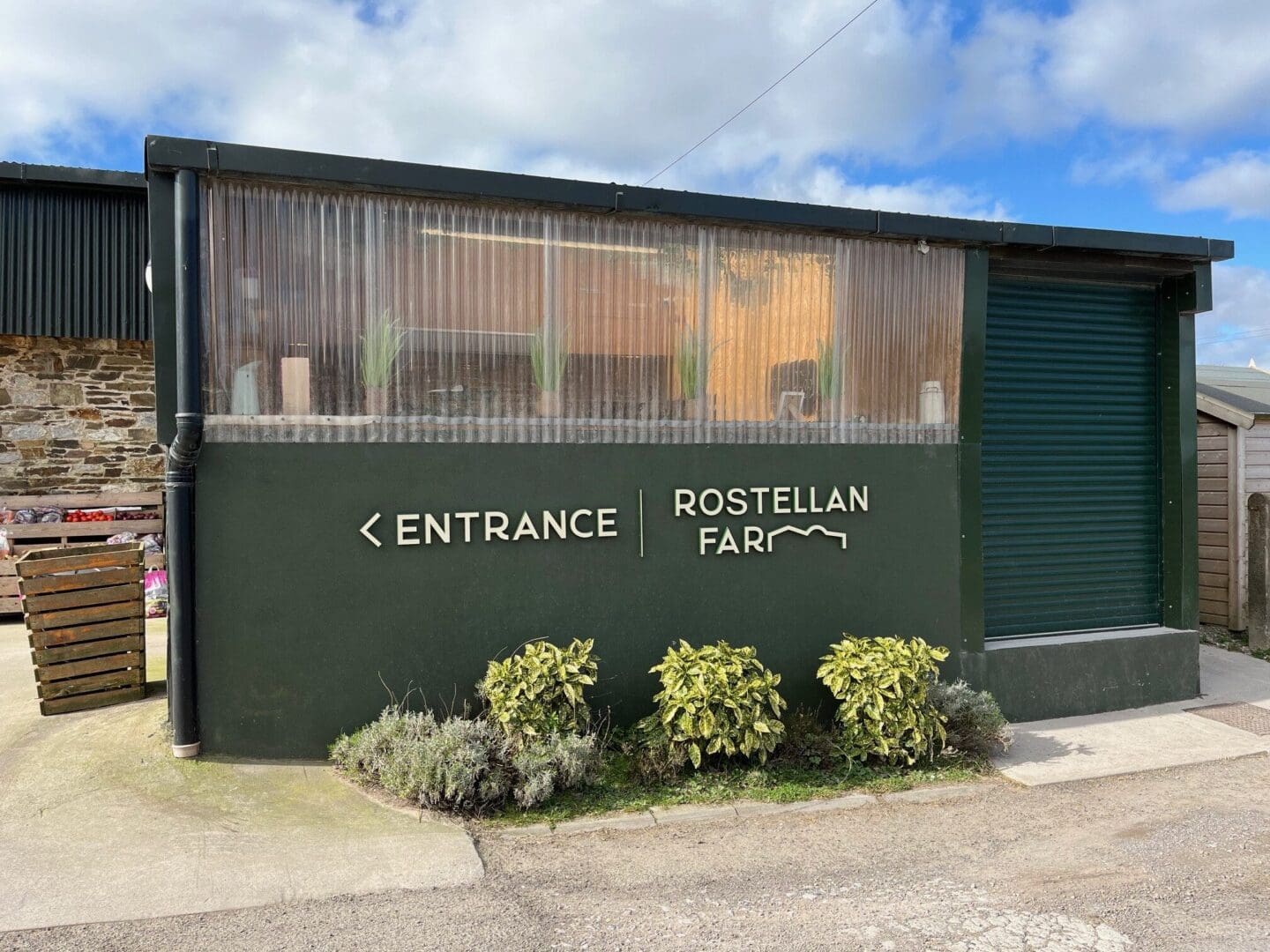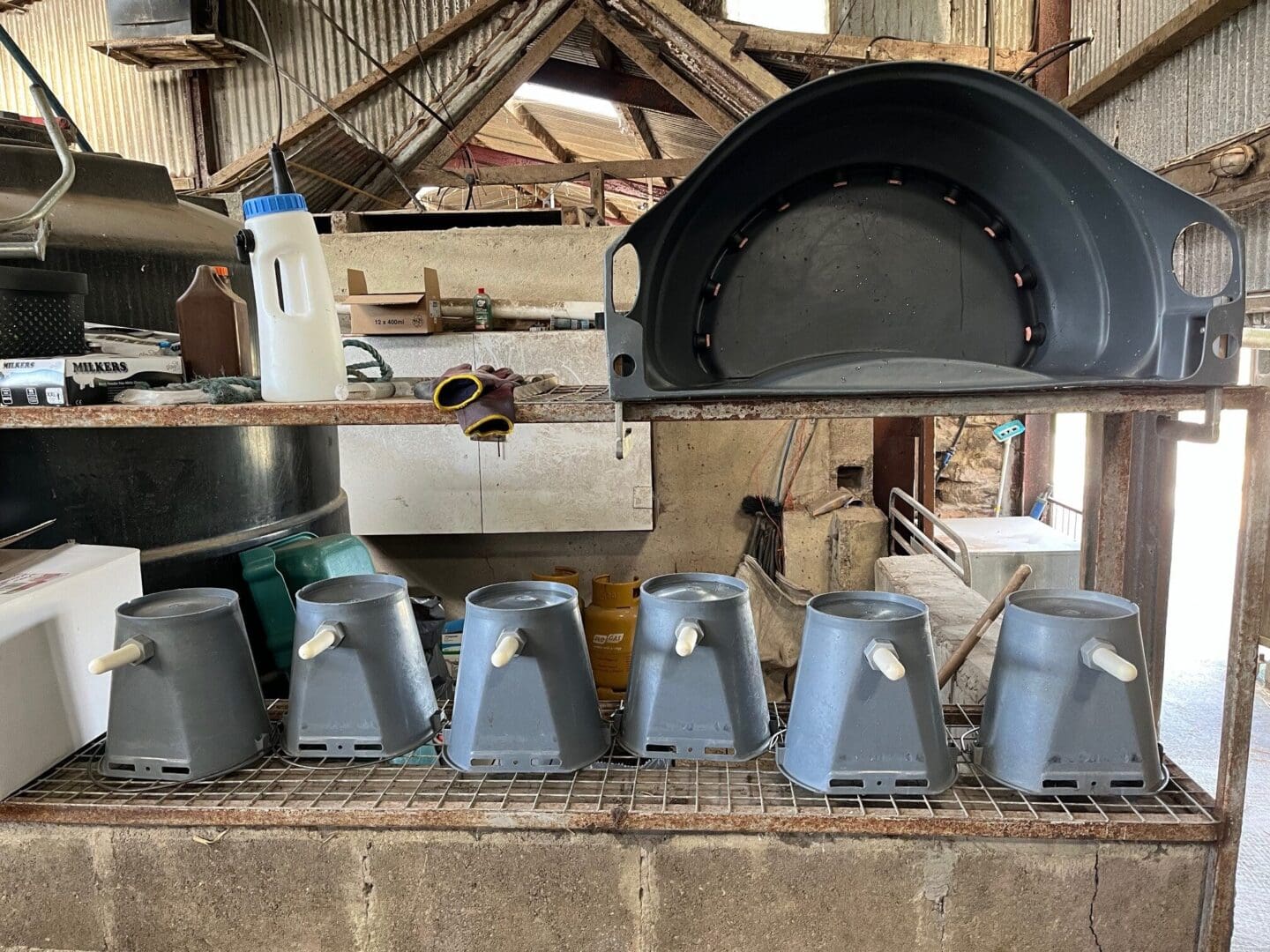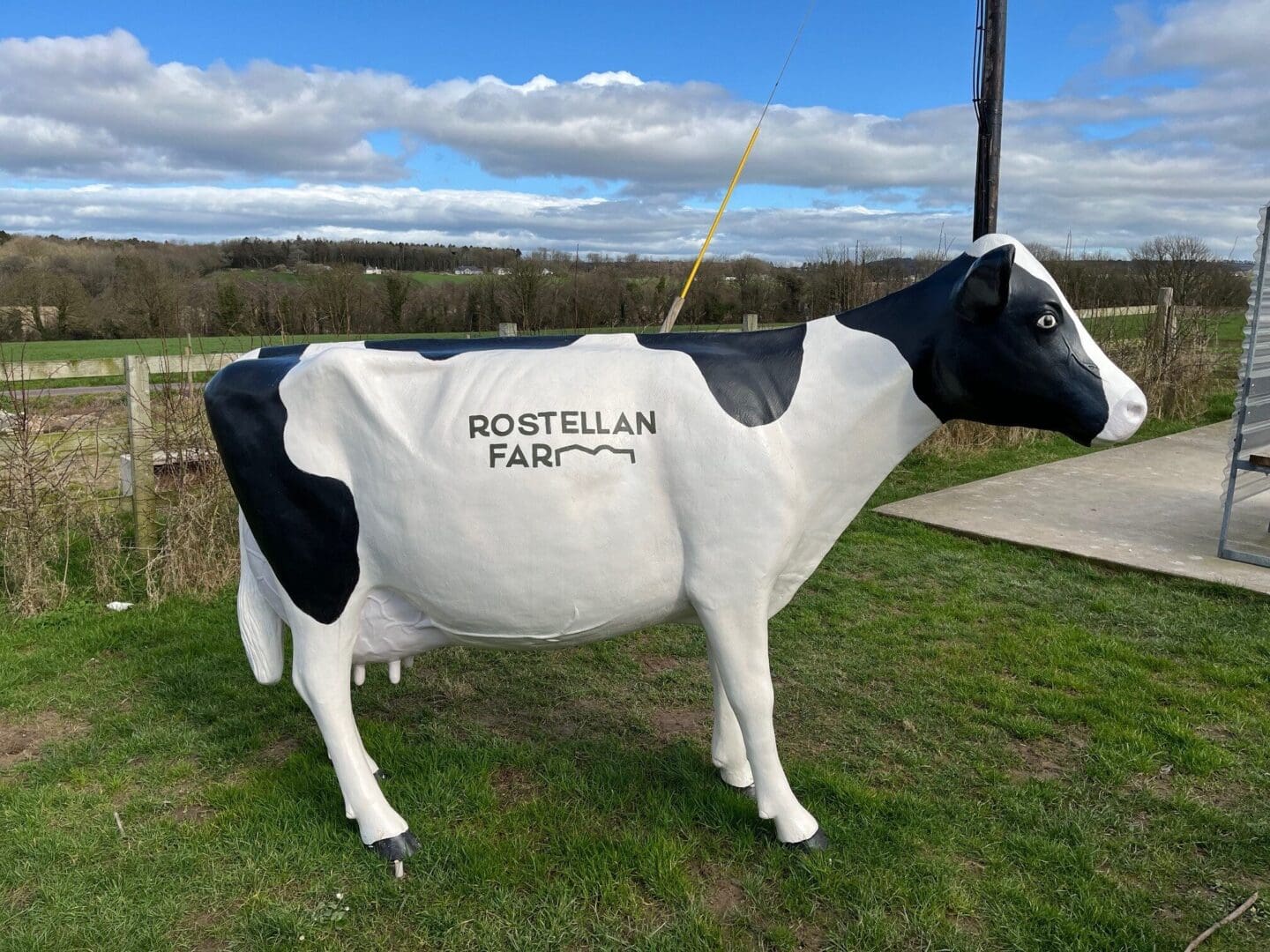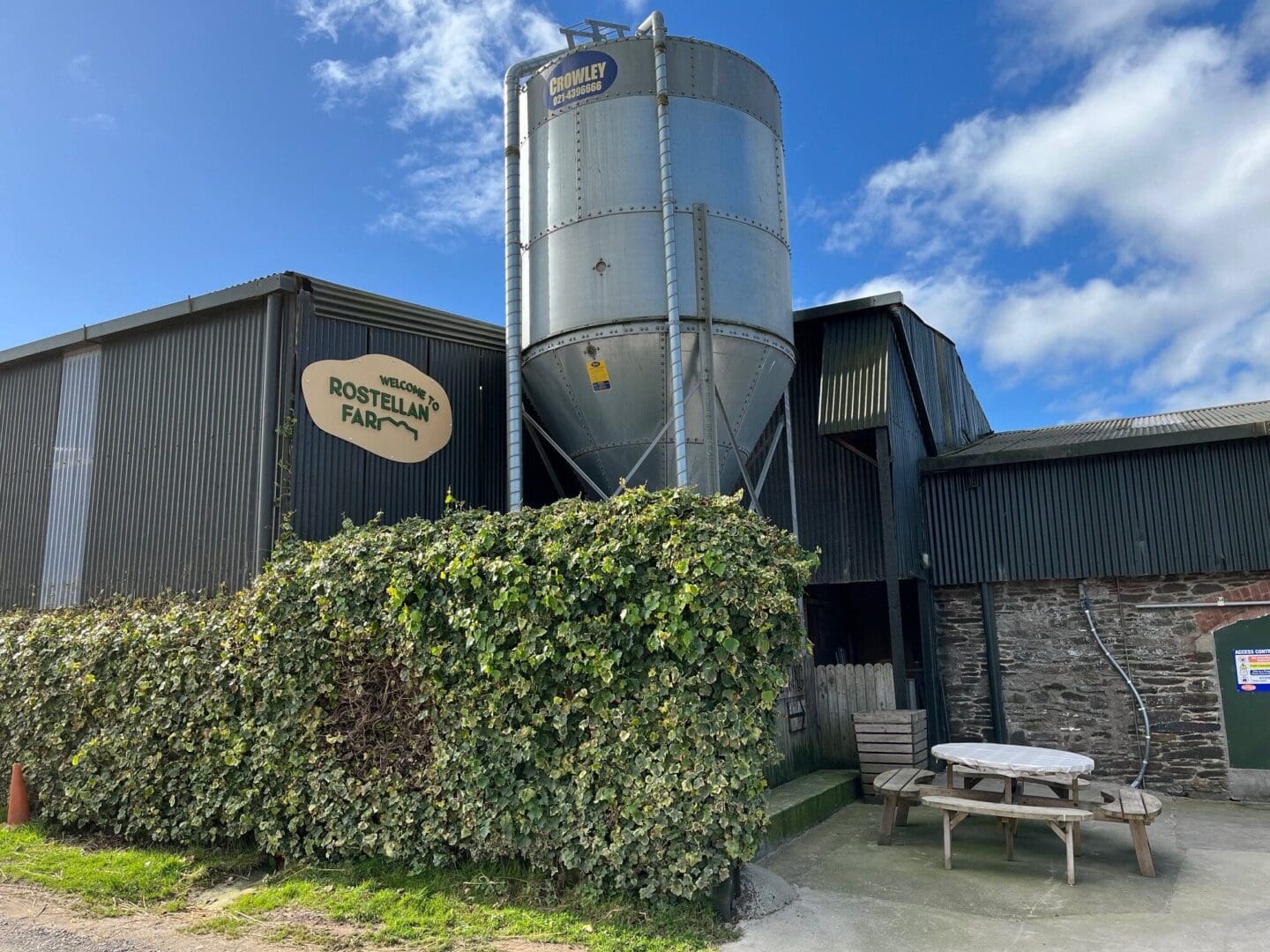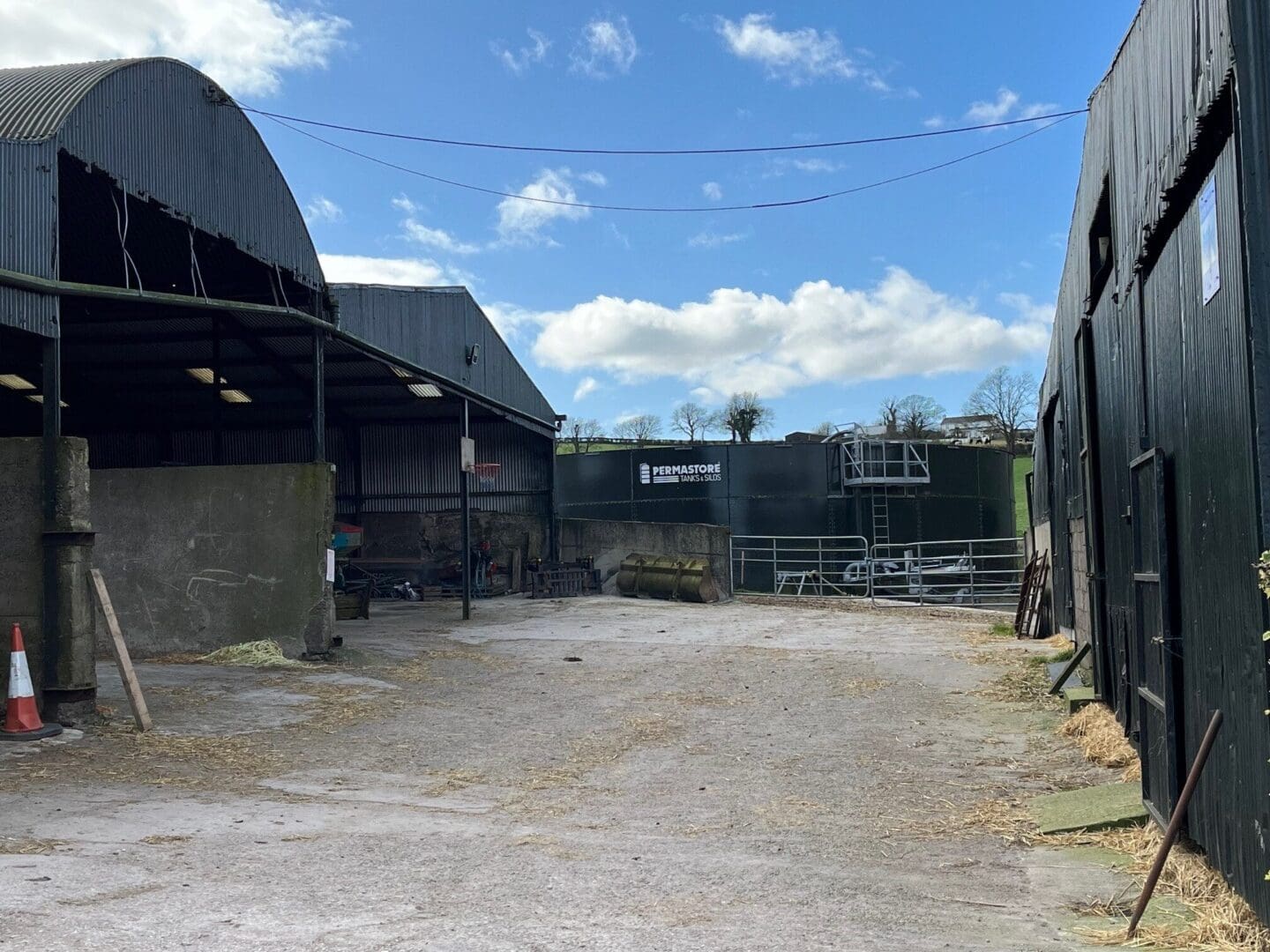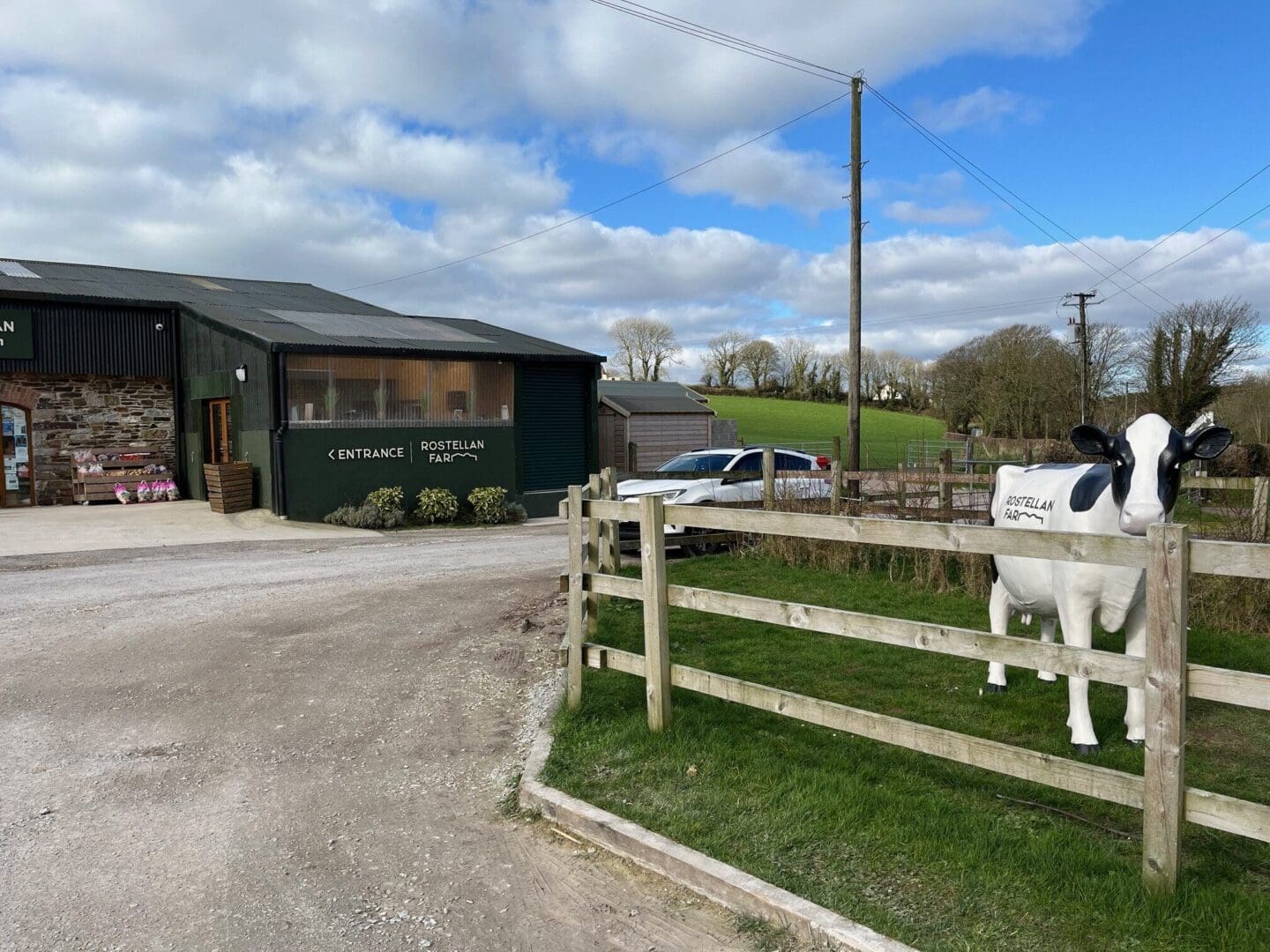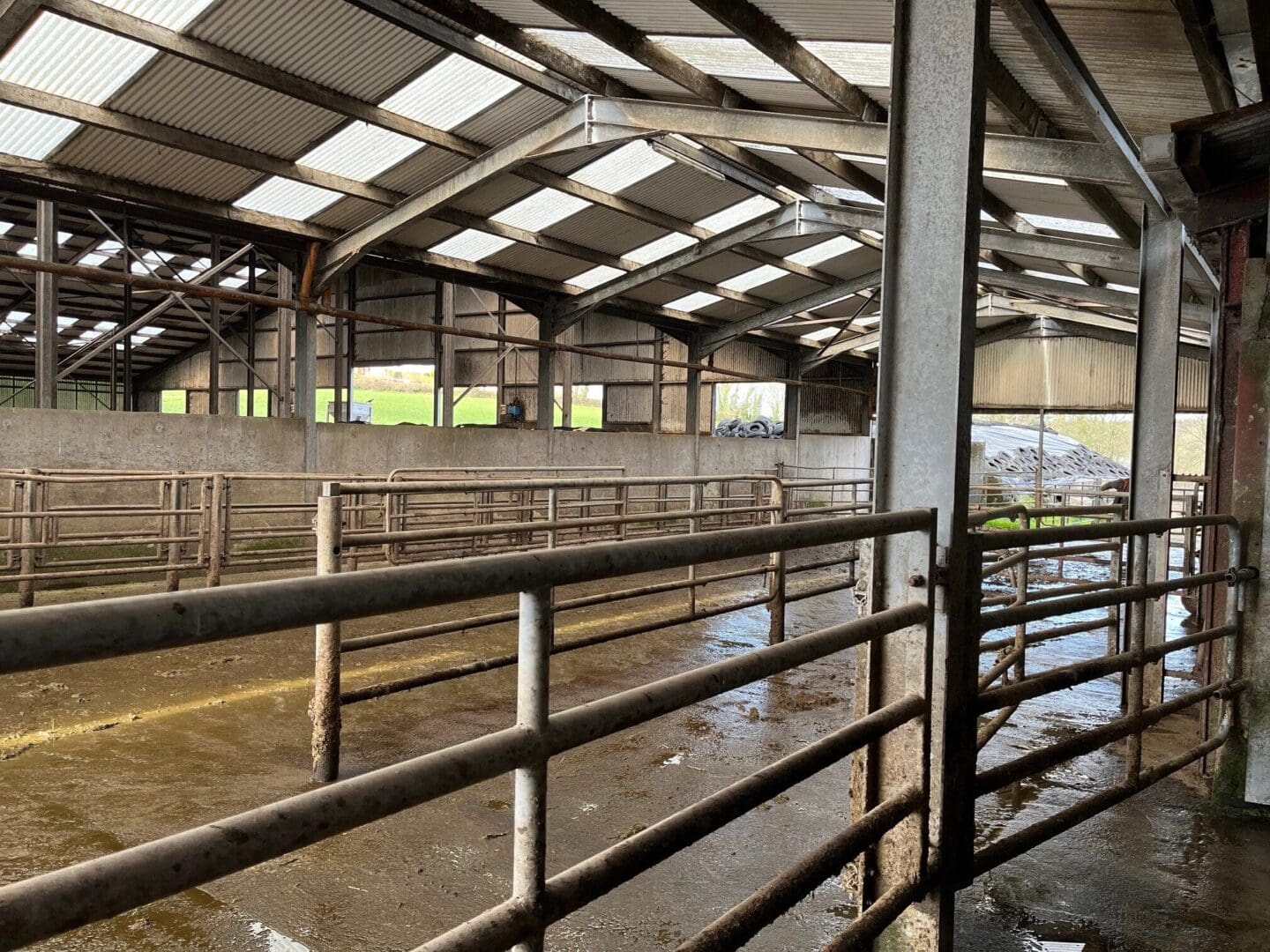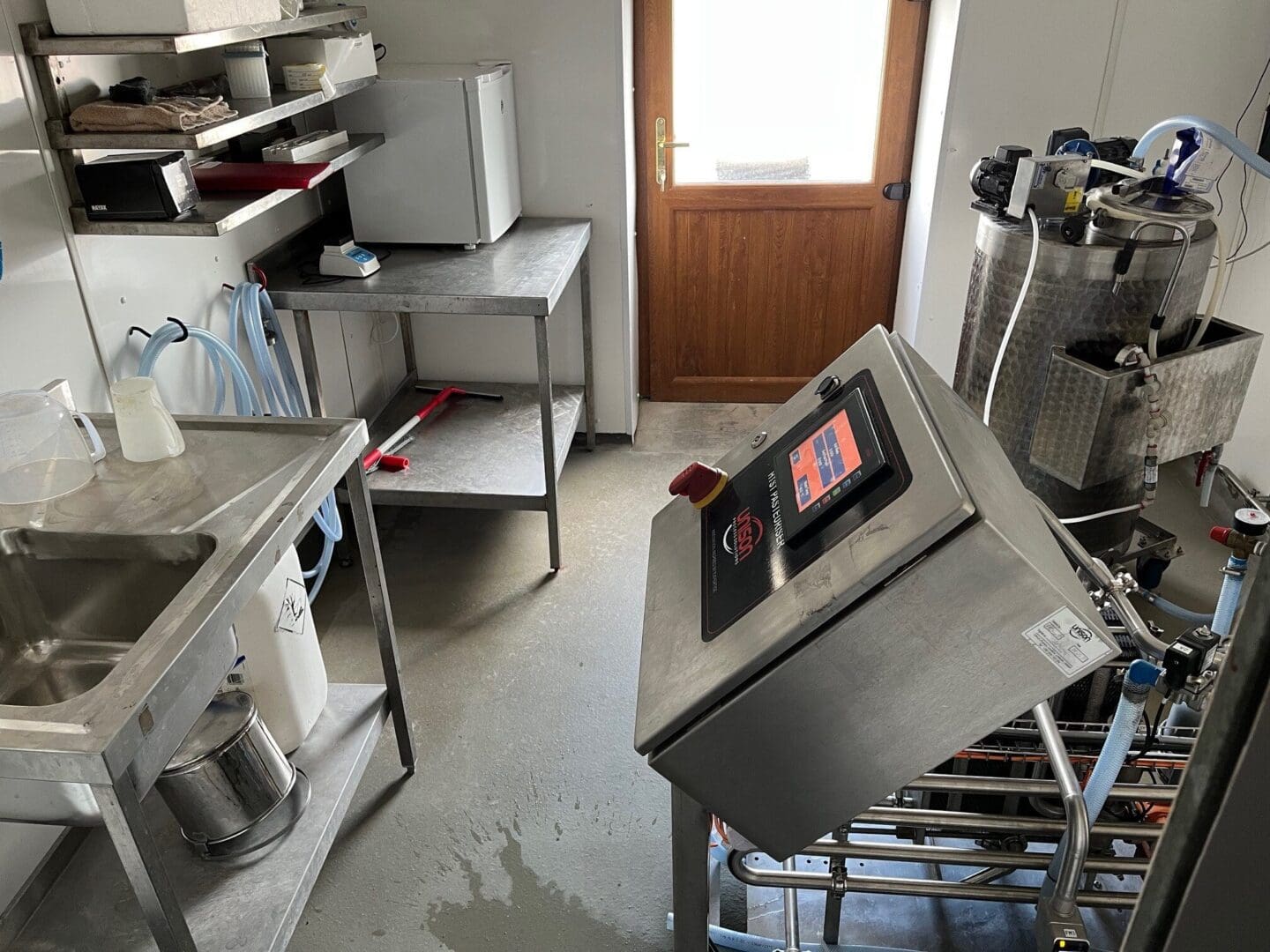Accidentally Becoming a Rural Hub

Name:
Olivia and Joe Morrissey
Location:
Rostellan, Co. Cork
Farm Type:
Dairy Farm with Shop and Cafe
Participating Schemes:
Farm Size:
35 hectares (87 acres)
1. Overview of the Morrisseys
The Morrisseys are dairy farmers in Rostellan, Co. Cork who have diversified their farm income by developing Rostellan Farm shop. Olivia’s participation in the ACORNS (Accelerating the Creation Of Rural Nascent Start-ups) programme in 2021 helped her to develop the business. LEADER funding has assisted in purchasing marketing materials and food processing equipment. The farm is registered in both the Basic Income Support for Sustainability (BISS) and the Eco–scheme, where 17% of their farm is reserved as Space for Nature.
2. Introduction
Joe and Olivia have overseen significant changes to increase farm profitability in recent years. A new milking parlour was badly needed but there were no obvious opportunities to expand, so they decided they needed to try something different. They reduced their herd and the overall farm business became more profitable through diversifying their income streams and selling their milk directly to local customers.
3. Farm Diversification

“I was thinking of something at the end of the garden initially, laughs Olivia, but the more I was talking to Joe and the more ideas that I was having about what I was going to be selling, I decided we needed to do something with the buildings. An old calving house was eventually selected for a farm shop with a small milk processing facility and a carpark. “We couldn’t get finance from the banks because they could not understand what we were trying to do or how it was going to make money. Luckily 2021 was an exceptionally high milk price year which enabled them to have enough financial surplus to invest into the farm shop.
Joe is happy to continue milking the cows but admits that selling the milk direct to their customers is the most profitable part of the dairy enterprise. “The economics don’t lie” , he says emphatically. In 2024, over 35,000 litres were sold through the shop and in 2025 they hope to sell over 10% of their milk through the shop.
4. ACORNS: Support for Rural Female Entrepreneurs

In 2025, the ACORNS programme is celebrating 10 years of supporting early-stage female entrepreneurs living in rural Ireland. Olivia credits the ACORNS programme for providing her with the assistance she needed when developing her ideas in 2021.
“It was fantastic because it helped give me the confidence to figure out how to start the business and then to grow it.”
It was fantastic because it helped give me the confidence to figure out how to start the business and then to grow it, says Olivia who was grateful for the support she received from different programme mentors. It’s a very safe space to work in and whatever needs you might have; there is someone there who has the expertise to help you with it. I absolutely loved it.
5. Off to a Busy Start
The shop opened in August 2022 and is now open 7 days a week selling their milk through an automatic milk dispenser and in the form of butter and fudge. They also sell their own range of baked goods and deli products alongside a wide range of products from other local businesses. The shop employs 10 staff members, 5 of which are full–time.
6. Building a Community Hub

“The local yoga classes come here after class to get coffee and sit down on the farm for a chat. Older people come here to meet because they might be on their own. The Men’s Shed also come for coffee and on Sunday mornings, the women’s Gaelic football team come after training. Never did we think that this is what we were creating.”
The shop has become something of a hub for their community and for the local economy. Many accommodation providers now promote Rostellan Farm as a destination to experience real local food on a working farm. Local artisan food producers also sell their baked goods, jams, chocolates, cheeses, vegetables, salad leaves and olives through the shop.
Olivia believes that this business model can be replicated all over the country. What we’re doing could be scaled up everywhere and do something for communities. It would provide more food security for the nation, and it provides jobs, particularly for students looking for part-time work. It’s not a business that is targeted at any one person, but it seems to attract people from 0 to 100. We’re really lucky. I love kids coming to see the baby calves, hopefully they will keep coming back to us as they grow because they have gotten good memories. The local yoga classes come here after class to get coffee and sit down on the farm for a chat. Older people come here to meet because they might be on their own. The Men’s Shed also come for coffee and on Sunday mornings, the women’s Gaelic football team come after training. Never did we think that this is what we were creating.
7. Planning for the Future
Another shed is now earmarked to become a space to host events. Funding was provided through the LEADER programme in 2024 for signage, a life size plastic cow and a demonstration model of a milking cow. We want to go more into the farm tourism side of things because there is big demand for that, explains Olivia. Nearly every week we have a farm tour. It seems like agri–tourism is where a lot of business is going to come from (in the future). Tourists want the real Irish experience; something that is the real deal such as a place like ours, a working farm, and they are willing to pay for it.
8. Conclusion
Advising other farming families considering diversification, Joe says, Don’t be afraid of the hard work…if it pays off, you’ll be more confident about its ability to generate income rather than just (relying on) farming. Olivia agrees Don’t copy anybody else because people appreciate something different and will keep coming back to you. Olivia believes that rural women with innovative ideas now have the supports required to help them see their vision through to the end. Farm diversification is the route to go, and it will start to bring employment, create hubs and grow small rural areas again.

